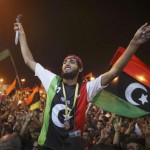united nations
Rebels Enter Tripoli
It appears that the Rebels have entered Tripoli yesterday without much resistance, although pockets of intense fighting continue to exist. The WSJ reported world reaction as follows: U.S. President Barack Obama: "The people of Libya are showing that the universal pursuit of dignity and freedom is far stronger than the iron fist of a dictator. The surest way for the bloodshed … [Read more...] about Rebels Enter Tripoli
Chinese U.N. Ambassador to International Media, “You are the sixteenth member of the Security Council.”
Ronda Hauben has an excellent article on how the international media can play a constructive role with United Nations in fostering peaceful relations between nations. Her article appeared in the the 4th Media. She is a correspondent at the United Nations for a number of media organizations. "International Media 'the 16th Member of the Security Council'" Ronda … [Read more...] about Chinese U.N. Ambassador to International Media, “You are the sixteenth member of the Security Council.”
On Human Rights, Intervention and the International Order
The idea of “human rights” is neither new nor did it suddenly sprang into existence after WWII. It has arguably existed since the dawn of human existence, as portrayed in human stories and mythologies and exemplified throughout human history in man’s struggle against the arbitrariness of a higher power, be they of gods, fortune, nature or tyrants. In Chinese society, such … [Read more...] about On Human Rights, Intervention and the International Order

